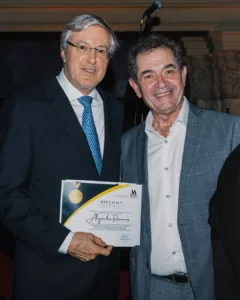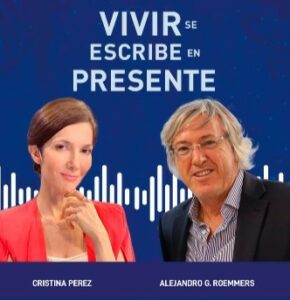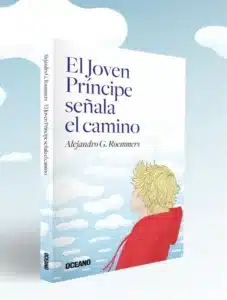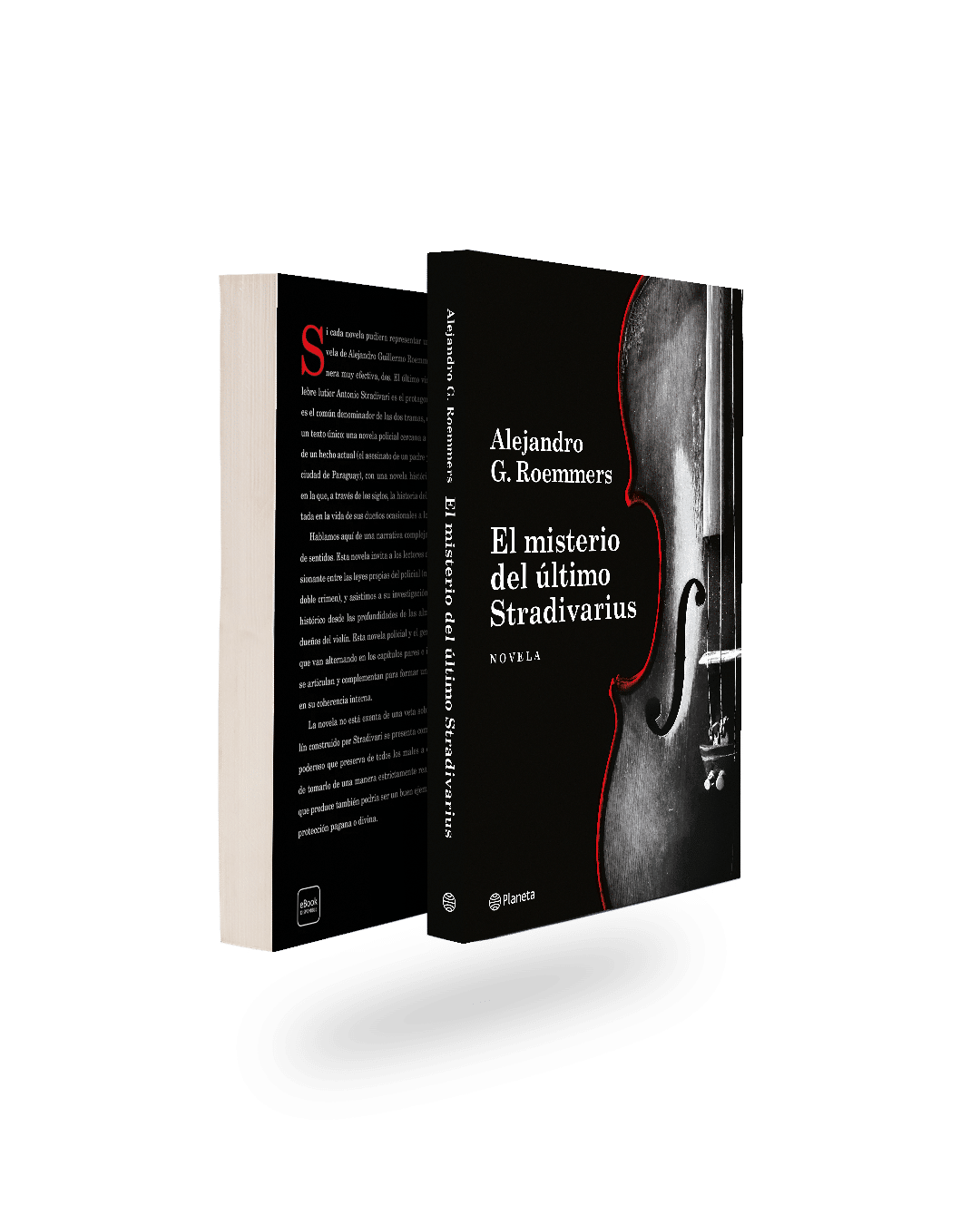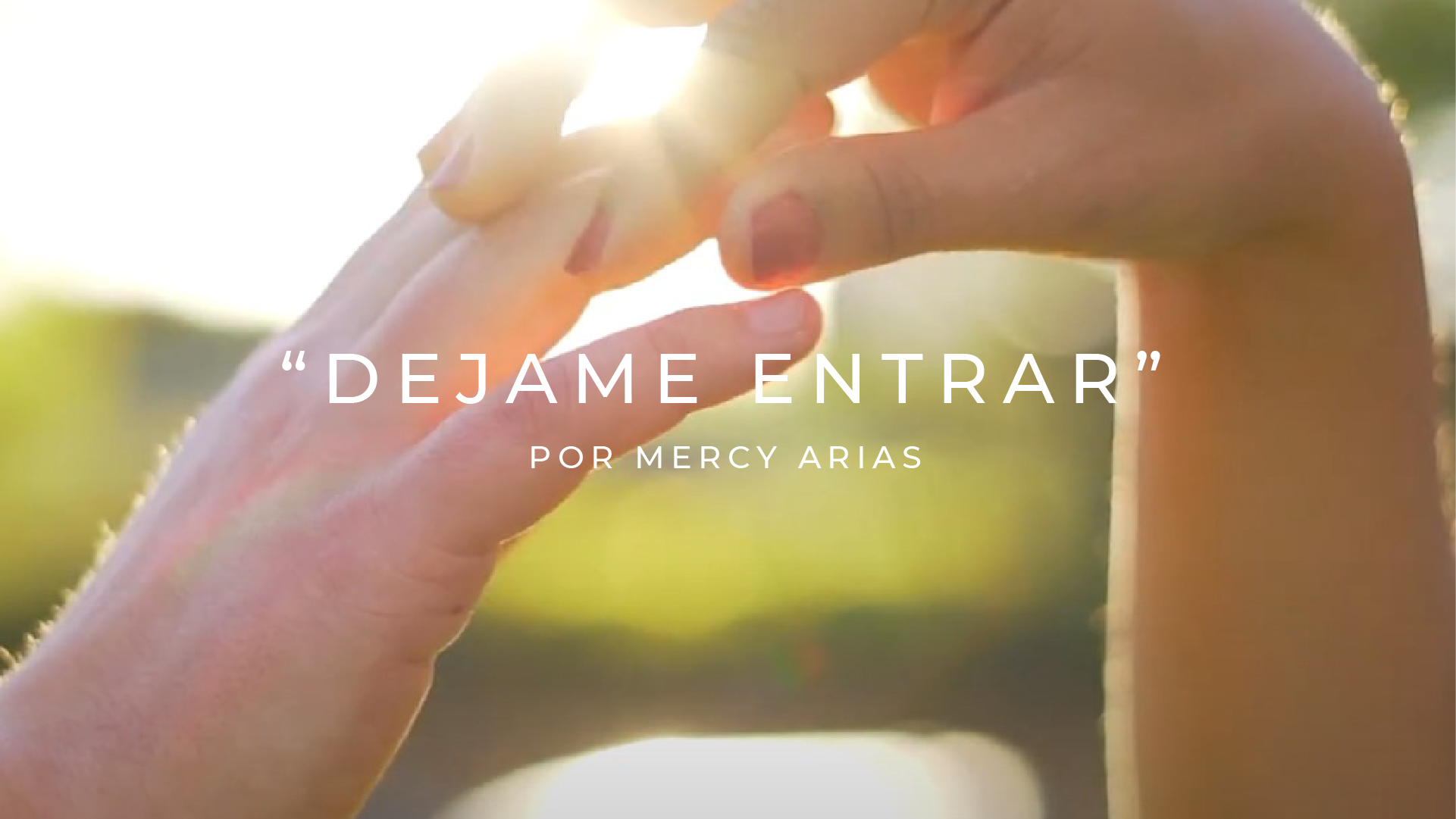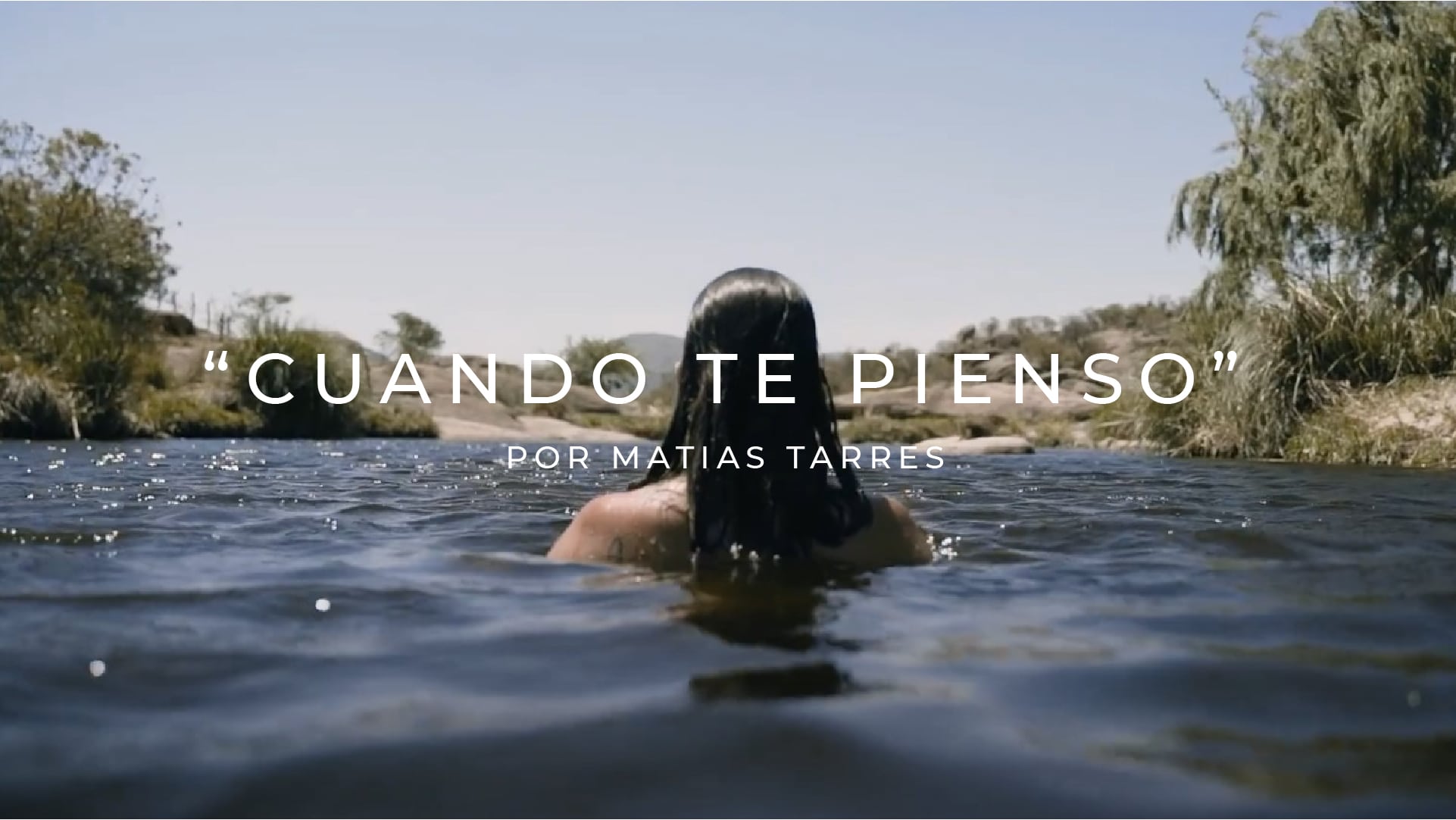The businessman, producer and writer will present his youth novel “The Young Prince Points the Way” this afternoon in the main hall of the Book Fair, where he also has his own stand
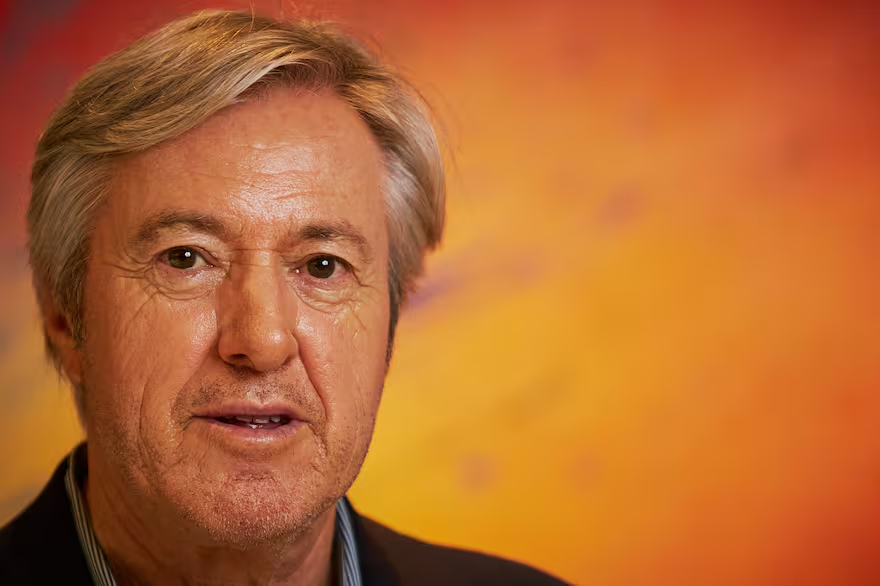
For the second time in Buenos Aires Book Fair, the writer, producer and businessmanAlejandro Roemmers (Buenos Aires, 1958) has a stand at the Book Fair: 1610 of the Yellow Pavilion. And today, at 7 p.m., he will present his new novel,The Young Prince points the way (Océano, $15,900), with the writerMaria Rosa Lojo and the journalists Luis Novaresio and María Laura Santillán, in the José Hernández Room, the largest in La Rural.
In the story, the “Little Prince” – a teenager who has not become addicted to cell phone screens and interrogates others with a gentle Socratic air – is named after Juan del Valle. His arrival at a secondary school attended by children from wealthy families, and where the competitive spirit is encouraged, will change the destiny of others and his own.
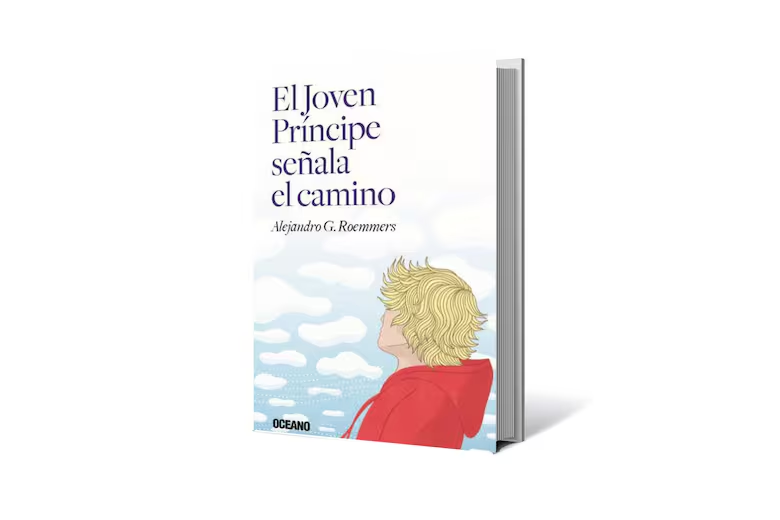
The new novel, aimed at young audiences, continues the story begun in The Return of the Young Prince,also adapted to the musical genre.In early 2022, he published the thrillerDie what is necessary, which was presented at the Book Fair by the Nobel Prize in Literature Mario Vargas Llosa.
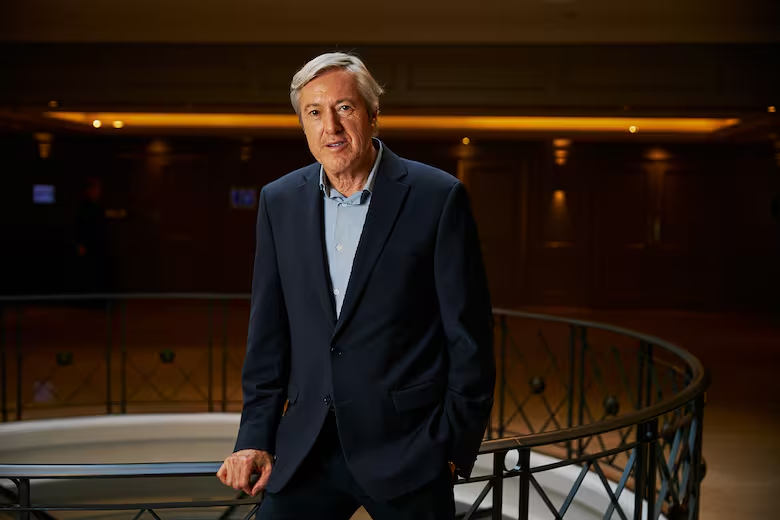
Recently arrived from Uruguay, he participated the day before yesterday inthe dinner for the 36th anniversary of the Libertad Foundation and met President Javier Milei in person. “I was simply able to greet him when he came to the table after giving his speech,” he tells LA NACION. “I also met Karina Milei, the sister.” For Roemmers, Argentine society must accompany the Government’s management. “The President can inspire the change that the country needs, start it, unblock many things, but then it is the entire society and the power factors that must accompany him,” he remarks. He can point out a path for transformation, but the provinces and municipalities have to accompany him. He is very determined. If you want to please everyone, it is very difficult to make a big change. “Argentina was unviable as a country.”

Roemmers, who is a personal friend of Pope Francis, anticipated that the Supreme Pontiff could visit Argentina at the beginning of November. “After they gave me theSan Francisco Award, In 2023, we hugged 140 young people of different ethnicities and thirty Nobel Peace Prize winners; He couldn’t come because he had had surgery. On May 11 we are going to do it with the Pope in the Vatican, on World Fraternity Day. Every once in a while I will visit him. He is very concerned about peace, but also about migrants and the most needy people. I suppose he will transmit that when he comes to Argentina.”

He is satisfied with his new novel; Like the previous ones, all proceeds from the sale will go to Unicef. “I’m happy,” he says. I read it when the publisher sent it to me, you always find a small mistake; I hope that this issue is resolved in the second edition. But it’s entertaining and I liked it. Several friends told me: ‘Hey, how modern, it’s more like teenagers today, I was hooked.’ I looked for a language for that audience, it is a book that goes from the simplest and most everyday and in the last chapters goes deeper.”
Fittingly, The Young Prince Points the Way addresses the issue of education and the social values that are under discussion: training young people for a future dominated by science and technology or promoting the development of the “three Cs”, such as says Roemmers: creativity, collaboration and awareness, “as lucid as possible.”
The author shares the values of the young protagonist. “Somehow it made me go back to school; I asked myself what would happen if, with today’s consciousness, I went back to high school at fifteen years old. The only thing I had to decide for this book was whether I was going to give Juan a special type of power, a magical or miraculous type, to the protagonist, and I decided no. That he was a normal and common young man and simply with his lucidity, his brotherhood, his feeling and his love he could produce changes.”
“I live that stage through my nephews and the children of my friends,” he says. I see that there are schools that focus a lot on making strong leaders of the future. I have nephews who did not adapt well to that and went to other schools where the emphasis is on teamwork. I question education today, we must rethink it; Today there is artificial intelligence, it is not necessary to memorize, but discernment is necessary, all those values of camaraderie to seek respectful dissent, exchange ideas and lead without imposing. I think we have to start with the teachers. Education exists because there is someone to educate, there is the human factor.” People who prove their status as teachers will be able to take a free copy of the new novel from the stand.
A museum for Borges
Roemmers also met the Secretary of Culture, Leonardo Cifelli, with whom he spoke about thelong-awaited project of the Borges Museum, which was initially going to be inaugurated during the administration of Alberto Fernández. “I was with him at the Borges Cultural Center and we are looking at that issue,” he reveals. On the one hand there is the offer to adapt an exhibition space in the Borges and that a preservation room for the manuscripts be in the Jorge Luis Borges Documentation Center of the National Library, where researchers and experts can go. Or in the former Post Office Palace, if it is called the Borges Cultural Center; “Maybe we’ll do it there.”
In his opinion, the cultural center of the Galerías Pacífico does not seem to be the right place. “It has a lot of plastic arts, dance, workshops, and it could be a space for various arts. We want to make a holographic and interactive presentation, which requires silence and a special place. There is still someone missing who addresses museographic design. We even thought about encouraging debates with Borges, Kafka, Socrates on different topics, such as time or love. For me, Borges serves to open your mind, challenge you intellectually.”
Asked who would provide the funds for a project like that during an administration that keeps repeating that “there is no money,” Roemmers responds that that is only one part. “Money appears when there is an interesting project; “I can help with the money issue,” he says. But I need some assurances, such as continuity, and that it be determined by law; It cannot be that another government comes and does something else. I also want a group of intellectuals with imagination to take charge who can create something that travels the world.” He also considers the possibility that the Borges Museum depends on a private foundation. “I have every desire to donate the collection; If there is no response from the State, I will try to find a private way,” he warns. The announcement had been made far away and long ago, in 2019, when President Fernández enjoyed popular approval.
According to what he graphed, his “Borges collection” – with manuscripts, letters, first editions of books and magazines, works by Norah Borges and other materials – could occupy two floors of an apartment. “It is on two floors at Alejando Vaccaro’s, it is impossible that someone would have taken it in a suitcase,” he says in reference tothe accusation of improper origin of the pieces, which María Kodama had made in 2019.
Doesn’t know yet the heirs of Borges’ widow. “They are not literary intellectuals,” he defines the five nephews. And they had no relationship with Kodama either. I was very surprised that she did not leave the legacy to a university in Japan and another in the United States. If this goes well, we could incorporate their collection into the Borges Museum; I think they could sell it, to me or to the State, and add it to what I have.”
Currently, Roemmers is putting the finishing touches on a new novel that has as its origin a police news story and is working on the continuation of the documentary Young Addictions, the first audiovisual project in which he participates as executive producer and which deals with the problem of new addictions in young people. young people to technology, social networks and electronic devices. In addition, he is preparing a film set in northern Argentina, about youth suicide. In May, he will receive the 2024 Ernesto Cardenal Award for Concord and Human Rights, for his intellectual and artistic contribution and his commitment to Ibero-American society. “I am against all types of violence,” he concludes.
Daniel Gigena

